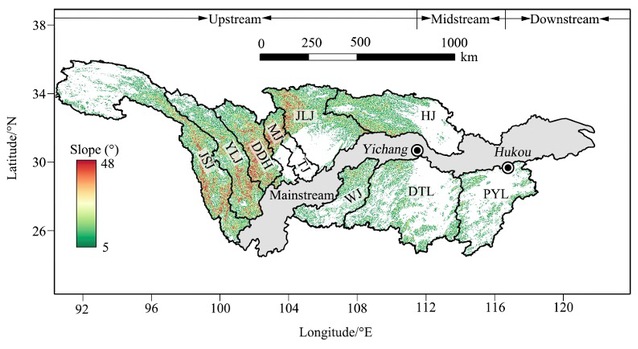Shijun Wang1,Chao Li1,*,Zhifei Duan1,Nicholas Chia Wei Ng1,Shouye Yang1
1State Key Laboratory of Marine Geology, Tongji University, Shanghai 200092, China
*Corresponding author.
Abstract
Chemical weathering of silicates serves as an important carbon sink, with profound implications for global climate change and carbon cycling. In large river basins, the complex topography and varied climate within the basin make it challenging to quantitatively characterize the weathering features in the river basin. To study the weathering characteristics in large river basin, which is the Changjiang River Basin in this case, we defined the “High Slope Area (HSA)” as a region within each major tributary with slopes greater than 5 degrees. We analyzed various landforms and environmental parameters within the HSA in relation to the Chemical Index of Alteration (CIA) of river sediments. Our findings revealed a stronger correlation between the CIA of river sediments and the overall parameters within the HSA than the environmental parameters of the entire basin in general. Notably, a negative correlation exists between CIA and slope and elevation in the HSA, suggesting an inhibition of physical erosion on chemical weathering. On the contrary, the temperature and precipitation in the HSA exert a positive impact on sediment CIA. Under high precipitation regimes, the enhancement effect of precipitation on chemical weathering may exhibit attenuation. However, this inference currently lacks statistical significance and requires validation through additional datasets. This study significantly enhances our understanding of the factors controlling CIA in river sediments and provides valuable insights into quantifying continental weathering at the large basin scale.
Full Article: https://doi.org/10.1016/j.gloplacha.2025.104841

Figure 1 shows the high-slope areas in the basins of the main tributaries of the Yangtze River

